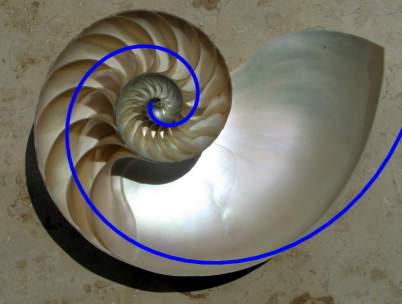HexHammer wrote:
Are you sure you get maths at all Hex?
Are you sure you get biology either? Because in space it would fit the Fibonacci sequence exactly but nautilus shells are subject to pressures that would crush us like a grape, nothing is perfect in nature Hex, except apparently your own view of it.
1.6180339887
There's no arguing with the maths.
The line shows the area within the shell, as a differential, it hence is pretty accurate if you know the maths.
http://www.inspirationgreen.com/fibonac ... ature.html
More FS in nature.
It's close to perfect Hex. It's so close that anyone in natural sciences would not argue with the seeming genetic rules of certain forms. You would, but you would be ill considered by others.
To sum up nature seems to form the most efficient shapes that involve the least energy, be it in a shell, a hurricane, a bees nest in it's hexagonal chambers, or a rain drop; it seems a general rule of nature to always be at this minimal energy value to exhibit the properties it does or may do to engender the ability to be more fecund as regards genetic aptness. The only thing that changes it is the underlying mechanics of nature, and only when it becomes incapable of adapting because the environment changes, that is when things change, they always seem to change with the propensity to fit the least energy over time too, but they may differ also.
The fundamental rules of nature, you'd be a fool to deny them.
